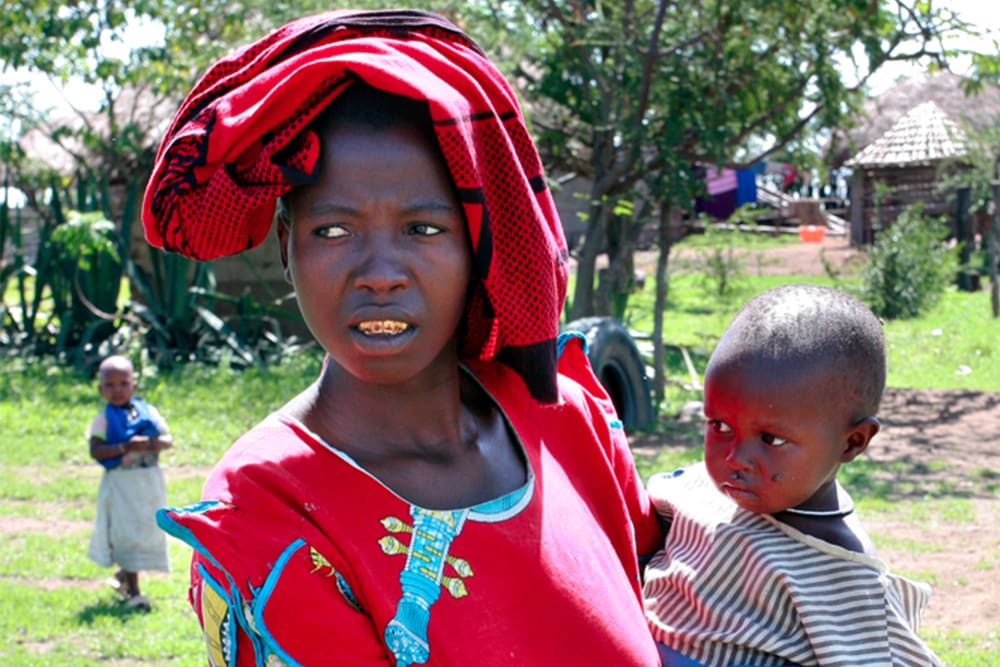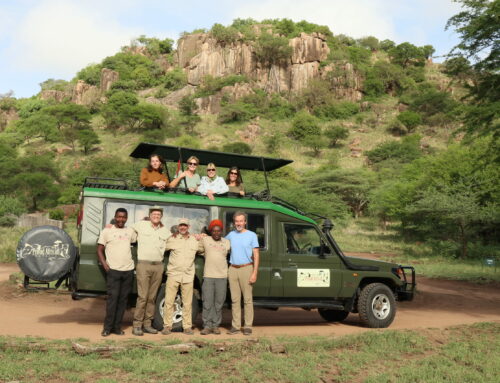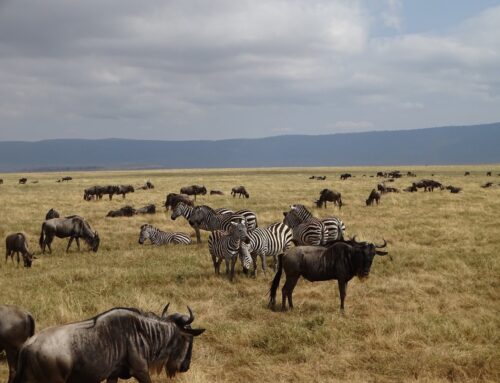Can Women Save the Serengeti?
“Girls from all over the world hold the key to our most pressing challenges, including climate change and environmental sustainability. Studies suggest girls’ education significantly and positively impacts families and communities. Investing in girls’ education is imperative.” – Damaris Parsitau
By 2050, the population surrounding the Serengeti is set to more than double. Hundreds of thousands of precious wildlife are poached and destroyed each year to feed the growing human population in these critical environmental areas. With climate change wreaking havoc on fragile ecosystems and food supplies, it’s vital to animal and human sustainability that population control and wildlife conservation take center stage in national and global policies.
But what is the key to saving the human and animal lives of tomorrow? It’s the women and girls of today.
It is young women who choose who gets here and when. Empowering women through continued education, schooling, and access to birth control is the only way to stop the threat of climate change and the disappearance of the Serengeti due to out-of-control population growth.
Recent studies and history bear out the truth that when women are educated and have the power to plan their families, they naturally choose to have fewer children. It is women in the critical Serengeti regions that want to limit their family size. But it is men who want, on average, six times more children than their female counterparts.
Women are the ones who take on the risk and burdens of bearing more children than they want and that the earth can sustain. While the high fertility rate of Tanzania and Kenya is due to teenage birth rates, adolescent girls have minimal autonomy and control over their lives.
It is through empowering young girls in developing regions that we can minimize the dangers of climate change and conserve the Serengeti. If you care about environmental sustainability and encouraging young girls and women, see how you can get involved and help us today.
Can Women Save the Serengeti?
“Girls from all over the world hold the key to our most pressing challenges, including climate change and environmental sustainability. Studies suggest girls’ education significantly and positively impacts families and communities. Investing in girls’ education is imperative.” – Damaris Parsitau
By 2050, the population surrounding the Serengeti is set to more than double. Hundreds of thousands of precious wildlife are poached and destroyed each year to feed the growing human population in these critical environmental areas. With climate change wreaking havoc on fragile ecosystems and food supplies, it’s vital to animal and human sustainability that population control and wildlife conservation take center stage in national and global policies.
But what is the key to saving the human and animal lives of tomorrow? It’s the women and girls of today.
It is young women who choose who gets here and when. Empowering women through continued education, schooling, and access to birth control is the only way to stop the threat of climate change and the disappearance of the Serengeti due to out-of-control population growth.
Recent studies and history bear out the truth that when women are educated and have the power to plan their families, they naturally choose to have fewer children. It is women in the critical Serengeti regions that want to limit their family size. But it is men who want, on average, six times more children than their female counterparts.
Women are the ones who take on the risk and burdens of bearing more children than they want and that the earth can sustain. While the high fertility rate of Tanzania and Kenya is due to teenage birth rates, adolescent girls have minimal autonomy and control over their lives.
It is through empowering young girls in developing regions that we can minimize the dangers of climate change and conserve the Serengeti. If you care about environmental sustainability and encouraging young girls and women, see how you can get involved and help us today.






